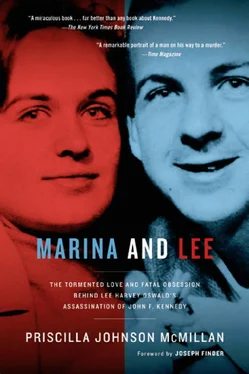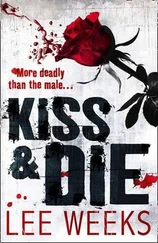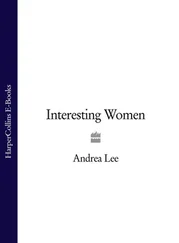This is what he told me:
Just before lunchtime on September 27, 1963, Nechiporenko, vice-consul at the Soviet Embassy in Mexico City, got a call from his coconsul, Valery Kostikov. “Listen. There’s some gringo here, asking for a visa. Claims he’s already lived in the Soviet Union, married one of our girls. They live in the States, but the FBI is persecuting him and keeping him from getting a job. I’ve gotta run. Off to lunch with the comrades. Come over here and get to the bottom of this.”
Nechiporenko’s first impression of the American was one of aloofness. He was standing on the steps, leaning against a doorpost, and did not react as Nechiporenko came toward him. “He seemed to be looking beyond me, absorbed in his thoughts.” He was wearing a light jacket, a sport shirt open at the collar, and rumpled slacks and appeared to be in a state of mental and physical exhaustion. But he became lively, even agitated, as he told his story of FBI persecution. Asked why he had left the Soviet Union and returned to the United States, Oswald avoided answering, and this put Nechiporenko on guard. The Russian, whose job as consul was a cover for his real work in counterintelligence, realized from the start that the KGB in Moscow would have a complete dossier on Oswald and that he was “not suitable agent material.” Nor was he of any real interest to counterintelligence. He told the visitor that he could give him the papers he needed and the consulate, as a favor, would forward them to Moscow, but the answer would still come from the Soviet Embassy in Washington and take at least four months. “Oswald slowly leaned forward and, barely able to restrain himself, practically shouted in my face, ‘This won’t do for me. For me it’s all going to end in tragedy!’” Nechiporenko noticed that his hands were shaking as he put his documents back inside his jacket.
That night, as he drove to meet a contact, Nechiporenko admitted to himself that he was disappointed at having had to waste an hour with yet another unpromising American. But when he got back to the embassy he stopped for a beer with his friend Kostikov. Kostikov had had a call that afternoon from a woman named Sylvia Duran at the Cuban consulate. She was checking on Oswald: After leaving the Soviet consulate that day, he had gone to the Cubans and told Duran that the Russians had promised him a visa. She wanted to know whether it was true. It was not true, of course. Like other statements Oswald made that day, it was a fabrication.
Saturday was soccer day at the embassy of the USSR. First to arrive for the game was Pavel Yatskov, boss of the two men who had seen Oswald the day before. Yatskov kept his sports clothes at the office and was preparing to change into them when the sentry showed in a visitor. It was Oswald. A little later, when Nechiporenko arrived to change into his clothing for the game, he spotted Yatskov and Kostikov seated at a desk, Oswald on the other side with his back to the window, documents strewn over the desk, and a pistol lying there. Worried about his comrades, Nechiporenko tiptoed into the office next to the room the men were in and put his ear to the keyhole.
As Kostikov described it to him later, Oswald had repeated his story of the day before, pleading that he needed a visa quickly because he was under surveillance, even persecution, at home and was afraid for his life. He dreamed of returning to Minsk and living there quietly with his family. Suddenly he became hysterical, started to sob, and cried, “I am afraid. They’ll kill me. Let me in.” Repeating again and again that he was being persecuted, and was being followed even in Mexico, he reached into the left pocket of his jacket and pulled out a revolver. “See, this is what I must carry to protect my life,” and he placed the revolver on the desk.
As Nechiporenko watched through the keyhole, Yatskov asked Oswald for the gun. Kostikov handed it to him, while Oswald continued sobbing. Yatskov opened the chamber, shook the bullets into his hand, and placed them in the desk drawer. He poured Oswald a glass of water. Calming down, Oswald explained that he also hoped to “help Cubans build a new life” and asked that as an alternative to giving him a Soviet visa, they recommend to the Cuban consulate that it issue him a Cuban visa instead. Yatskov explained that as a sovereign nation, Cuba decided such questions for itself. The conversation was over. Yatskov leaned down, extracted the bullets from the drawer, and calmly handed them back to the visitor. Oswald had meantime pocketed his revolver.
Before leaving the Metropole, Nechiporenko and I compared conclusions as to why Oswald had killed President Kennedy. I was not at all surprised that his interpretation was closer to mine than that of just about anyone I’d ever talked to—stressing above all the importance of certain last-minute events. In this book I describe Oswald’s asking Marina three times the night before the assassination to move in with him to Dallas from the house where she was staying with friends, and “I will find an apartment tomorrow.” Completing the domestic fantasy, Oswald told the coworker who gave him a ride to work on the morning of November 22 that the long package he was carrying contained “curtain rods,” when in fact it contained a rifle concealed in brown wrapping paper.
Without realizing it, Marina had had a negative power, I wrote in the book—the power to veto the act Oswald was considering. If she had said “yes,” and agreed to move back in with him, he might not have gone through with it. But if she said no…
Nechiporenko would go further, he said: From his long experience with unstable characters, he was convinced that Marina’s power to accept or refuse her husband that night had been more than a veto: It was decisive. Coupled with the fact that Marina was attracted to Kennedy, who in her view closely resembled an old boyfriend back in Minsk, her rejection could be seen to have triggered the assassination.
Is this an overstatement? Perhaps. But there can be no doubt that the assassination of our thirty-fifth President was inextricably linked to the fortunes of the beleaguered marriage between these two lost souls who’d grown up clear across the globe from one another—Marina and Lee.
Priscilla Johnson McMillan Cambridge, Massachusetts—2013
PART ONE
Russia, 1941–1961
In the predawn hours of Sunday, June 22, 1941, the dive bombers of Adolf Hitler swept down savagely on the sleepy, utterly unprepared Soviet fortress at Brest, on the border between Russia and Poland. So, abruptly, the war began, and for millions of men and women living in Russia at that time, as well as for millions yet unborn, life was destined to become the sprawling panorama of tragic suffering that is the shape of the country itself. Countless thousands were swallowed up as Hitler’s greedy divisions pounded across the plains and marshlands of western Russia. In the four cold, hungry, disease-wracked years that followed, thousands more were caught at random, seized and spun in the cyclone of war. For those who survived, life was never to be the same again.
A few months before the war began, Klavdia Prusakova, a twenty-three-year-old laboratory worker in Leningrad, found herself in a classic predicament. She was pregnant and unable, for reasons that are obscure to this day, to marry the father of her child. She packed up her bags that spring, said goodbye to the uncle whose apartment had sheltered her, and hurried home to her mother in Archangel. She found work in the nearby village of Molotovsk (now Severodvinsk) on the White Sea, and there, on July 17, 1941, two months prematurely and less than a month after the outbreak of the war, Klavdia gave birth to a girl weighing little over 2 pounds. Miraculously, the child survived, and when the doctors pronounced her strong enough, Klavdia bundled the baby up and took her the 30 miles to her mother’s apartment in Archangel. That apartment was to be the child’s home until she was almost six years old.
Читать дальше











